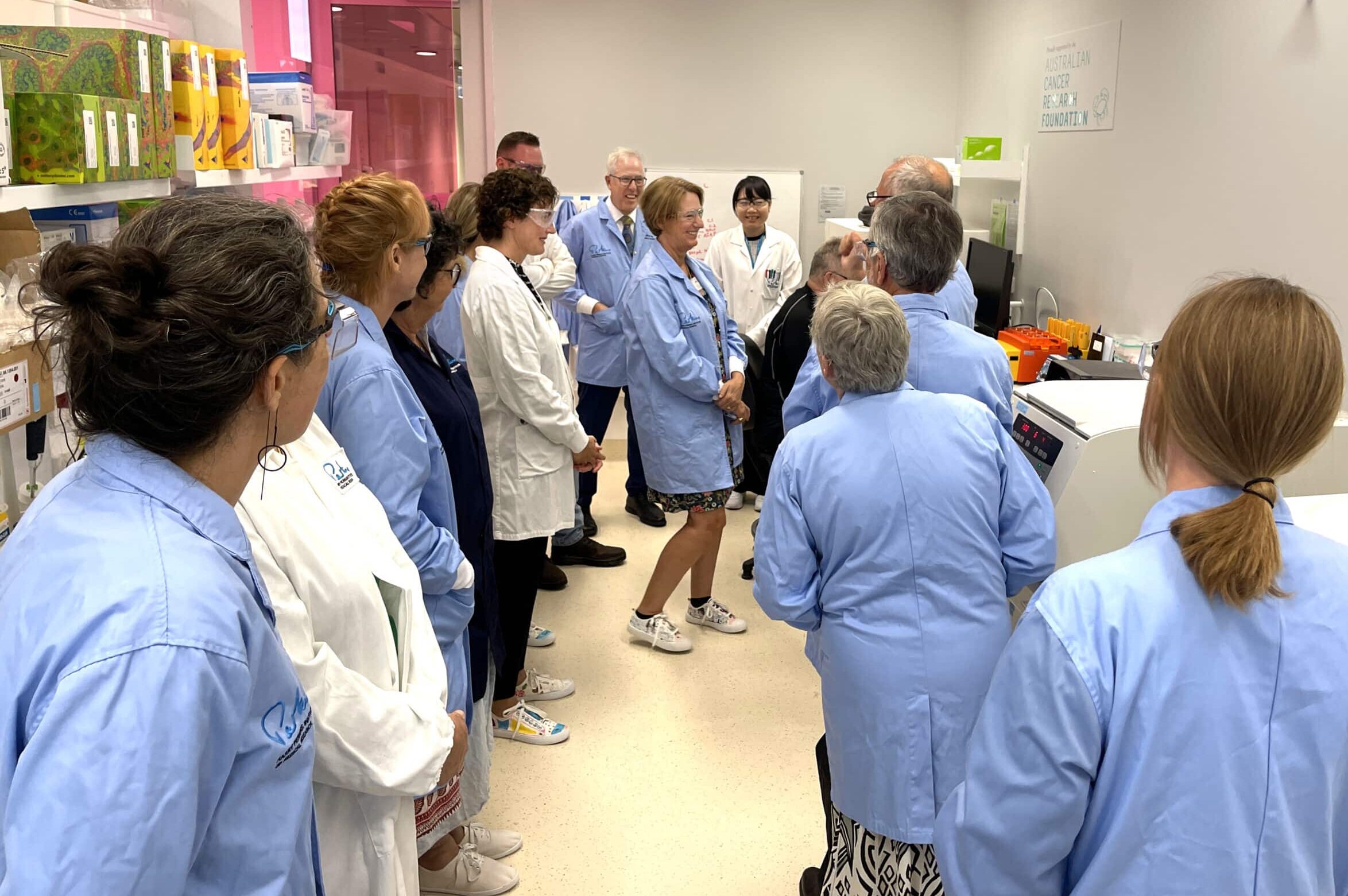
Latest technology analyses WA cancer patient tumours.
The Australian Cancer Research Foundation (ACRF) Centre for Advanced Cancer Genomics, housing the next generation DNA sequencing technology, was opened today at the Harry Perkins Institute of Medical Research by the Federal Member for Curtin, Ms Kate Chaney.
ACRF CEO, Kerry Strydom, in Perth for the event, said the collection of latest technology in examining cancers at a cellular level will benefit cancer patients in future.
“This is the next wave in cancer research. ACRF supports cutting-edge cancer research projects that our Medical Research Advisory Committee considers to have the greatest potential to improve outcomes for patients.
“ACRF’s award of a $1.75 million grant to fund this Centre is a real credit to the pioneering research being undertaken here in Perth, Western Australia”.
The ACRF Centre for Advanced Cancer Genomics is being led by Professor Alistair Forrest at the Perkins. It includes a consortium of cancer researchers from across Perth who are building a comprehensive atlas of the cell types that make up cancer tumours.
“The Centre’s suite of technology will make it quicker and less costly to generate large amounts of cancer cell data, which means the tumours of more patients will be able to be analysed.
“These technologies are the latest in genomics. They provide a once in a decade opportunity to analyse thousands of cells from hundreds of tumours and examine billions of genetic sequences to determine the genetic make-up of each tumour and provide new insights into how cancer cells evolve and interact with normal cells.
“What these spatial technologies will allow us to do is look at tumours in hundreds if not thousands of colours, where previously we were analysing tumours, effectively in two colours,” Professor Forrest said.
Every tumour is unique. Through single cell analysis researchers are better able to predict a tumour’s response to drugs, to identify new drugs to combat cancer and develop innovative ways to kill cancer cells.
In the past two years, using equipment as it arrived for the new Centre, researchers have been examining different tumours including a type of ovarian cancer which typically recurs and has poor outcomes, melanoma samples and blood samples from mesothelioma patients, which is a disease with a terrible prognosis.
“Now with the Centre’s final piece of equipment in place we will have something like a Google map of a tumour, we’ll have spatial resolution of where these cells are relative to each other.
“This is particularly important because cells signal to each other, they send little messages to each other. We will be able to see the signalling between cancer cells and immune cells. We will be able to see if the immune cells are likely to recognise the cancer cells and destroy them or if the tumour cells are sending a ‘don’t eat me’ signal to the immune cells causing the immune cells to switch off.
“We will be able to see what genes are being expressed, what cell types are next to each other, what they are saying to each other, whether there are multiple genetic variants in a tumour, whether some would respond to a particular drug and which would not, giving researchers vital information on alterations to new treatments or things to target in making new treatments.
“In terms of potentially leading to new treatments, being able to understand which cells are next to each other and what messages they’re sending to each other enables researchers to think of treatments that disrupt that.
“For example, if you know which cells are sending a ‘don’t eat me’ signal to immune cells and you turn that off then suddenly the immune system can start attacking them” he said.
Professor Forrest said the low survival rates for some cancers, such as mesothelioma, ovarian and pancreatic cancers, highlight the need for these new approaches to understand and target cancer better.
The Centre is supported by the ACRF, the Cancer Research Trust, the Harry Perkins Institute of Medical Research, The University of Western Australia, Curtin University, Edith Cowan University, and the CSIRO.
Chief investigators on the ACRF grant include: Prof Alistair Forrest, Prof Peter Leedman AO and Prof Ryan Lister from the Harry Perkins Institute of Medical Research; Assoc Prof Timo Lassmann, Prof Ursula Kees, and Prof Terrance Johns from Telethon Kids Institute; Prof Christobel Saunders, Prof Camile Farah, Prof Bruce Robinson, Prof Anna Nowak, Adj Prof Richard Lake, Prof Michael Millward, Prof Wendy Erber and Assoc Prof Benhur Amanuel from The University of Western Australia; and Prof Mel Ziman from Edith Cowan University.
VIDEO: Watch this video of Prof Alistair Forrest from 2017, when the grant was awarded.
IMAGE: Guests attending the opening of ACRF Centre for Advanced Cancer Genomics toured the lab where the equipment is being used.
